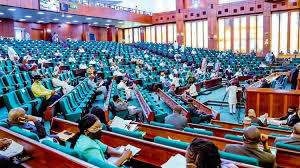The Minister of Humanitarian Affairs, Disaster Management and Social Development, Hajiya Sadiya Umar-Farouq, Tuesday, said the ministry has so far impacted the lives of 15 million families through the National Social Investment Programmes (NSIP).
Speaking Tuesday in Abuja, during the 23rd edition of the President Muhammadu Buhari administration’s scorecard series, the minister said the NSIP has been the key instrument in uplifting the lives of the poorest of the poor individuals in the country.
She reiterated her commitment to ensure the promotion and protection of the dignity of the vulnerable Nigerians, even as she solicited the cooperation and understanding of members of the media and the public to continue serving humanity.
She said: “The NSIP has provided assistance and hope to millions of Nigerians. Let me once again list them as the National Homegrown School Feeding Programme, the job creation unit (Npower), the National Conditional Cash Transfer (CCT) and the Government Enterprise and Employment Programme (GEEP).
“The programmes were all initiated by the Federal Government as part of intervention programme to cater for the welfare and well-being of vulnerable Nigerians. The National Homegrown School Feeding Programme has already captured and fed over 9.9 million pupils across the 36 states of the federation, including the FCT.
“The ministry, through the N-Power Programme has supported over 1.5 million unemployed youths across Nigeria. The ministry has provided and supervised the distribution of relief materials to victims of recent food disaster across the country.
“The ministry carries out impact assessments on quarterly basis by independent monitors to ensure effective service delivery. The National Senior Citizens Centre was established with the mandate to identify the need of senior citizens and cater for them, especially their health and physical wellbeing.
“The centre has also developed a 10-year strategic plan and commences operationalisation of a National Policy on Ageing, which has also a high level technical support programmes and activities.
“It may interest you to know that I don’t even know the beneficiaries of the CCT programme. It is a transparent programme that I don’t even know the beneficiaries in Zamfara state where I come from because the beneficiaries are the poorest of the poor who are selected by members of the community. As for the Borno IDP camps fire, NEMA and the North East Development Commission have visited to assess the situation as first responders.”




